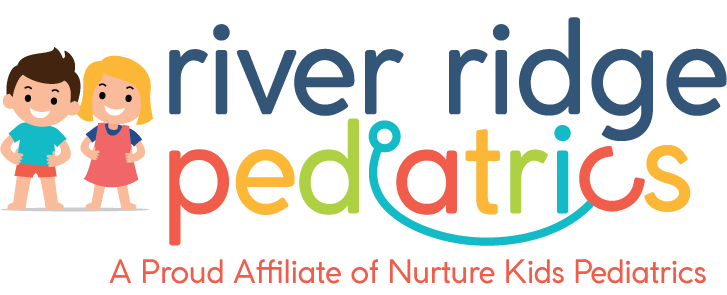Can Probiotics Help Sooth Colic? The Facts and the Myths
Can Probiotics Help Sooth Colic? The Facts and the Myths
Parents will try almost anything to soothe a colicky baby in the middle of the night. Sleep deprivation by parents combined with good marketing strategies have created a successful industry designed to convince parents to try more and more products to treat colic, which over the decades have significantly increased in numbers. From Grape Water to Simethicone drops, to anise seeds, although harmless, they all fail to uniformly provide a “cure” for the problem of colic.
 What is colic?
What is colic?
Colic is defined as episodes of uncontrollable crying in an otherwise healthy baby of less than 3 months of age; lasting more than 3 hours per day; at least 3 days of the week; for more than one week.
Can probiotics sooth colic?
Many products on the market today include “probiotics” in their ingredients which are advertised as a “possible” prevention or to sooth colic and are the “in” solution these days. But a recent study of over 1800 babies found no conclusive evidence that probiotics actually help treat colic.
Recently a study was published in JAMA Pediatrics which looked at 12 different trials investigating the value of Probiotics in treating colic, involving a total of 1,825 infants. The study found that Probiotics don’t really help to soothe babies with colic. The researchers call for more rigorous trials involving more infants. How much more can we do to disprove the claim? We already have looked at over 1,800 infants and found nothing!
Why are probiotics important for digestion?
Probiotics are live microorganisms which colonizing the human intestinal tract with various favorable functions, including decreasing inflammation, improving motility and strengthening of the mucosal barrier. In other words, they allow the intestine to do it’s function of digestion and immune protection in a more effective way.
Our intestine begins colonization after birth, when we start our contact with the outside world. Babies who are breastfed have a different colonization that those who are bottle-fed; therefor, breastfed babies show a stronger immune protection and breast milk is much better digested than formulas. To explain it in a more general way, mother nature intended for baby humans to ingest very effective age-appropriate nutrients present in breast milk and to be slowly but surely colonized with microorganisms to aid in the digestive process.
When we deviate from the natural process, as many mothers may have to do, babies may encounter difficulty digesting formulas and they may show symptoms of constipation and colic. To make things more complicated, we must mention that colic is not exclusive to bottle-fed babies and many breast-fed babies suffer it as well. Over the last few years, probiotics have been added to infant formulas in an attempt to improve digestion and increase the immune health of the infant.
Today, probiotics are sold over-the-counter and utilized by all age groups with many different purposes. Marketing campaigns suggest that probiotics contain all sorts of properties and may cure many different diseases. Right here we can see the first red flag. No product, pharmaceutical or not, can cure everything and be good for improving so many different parts of the body.
Can we dismiss probiotics all together? We shouldn’t.
Probiotics are used in nurseries around the country to prevent a serious complication that affects premature babies, it is called Necrotizing Enterocolitis (NEC). Although we don’t know exactly what causes it, we do know it is a risk for many premature babies and we also know these babies have some kind of perturbation of the intestinal microflora. The disease costs us $1 billion a year in the USA.
There was an article published in JAMA Pediatrics this month which mentions the favorable effects of probiotics at preventing Necrotizing Enterocolitis in preterm babies.
The American Academy of Pediatrics conducted studies on probiotics and conclude there is some evidence that probiotics prevent NEC. But there is no FDA approval for that claim. Why? Because in order to make a health claim, the manufacturer must submit a “New Drug Application” and start going through the hoops, like it should be for the protection of all of us. In the meantime, nurseries across the nation continue to use probiotics as a food supplement for their premature babies, knowing it may help prevent the terrible NEC.
Why don’t we have more trials on Probiotics then? I am afraid it is going to take a long time to prove their efficacy. There are many different kind of microorganisms, including Lactobacillus, Acidophilus, etc; each one with different sub-classes and doses. A true, rigorously scientific study it going to cost too much, to prove what we already know: Probiotics work to prevent NEC.
When evaluating a medication or natural product, we must use some scientific approach to evaluate its efficacy. The FDA is, in the United States, the regulatory agency capable of giving the green light of approval to pharmaceutical products with a claim to improve health or aid in treating disease. The agency has a series of difficult hoops to go through before granting approval and giving the authorization to use the product for treating human subjects.
As for all the rest of beneficial claims, such as the improvement in colic and so many others, we’ll have to use lots of common sense, aided by the fact that, to this point, probiotics are not responsible for any known negative side effects.
What can a parent do about colic?
My two cents to the dilemma, as I am always trying to help distressed parent who are now left without an answer, I can share that, in my practice, I have seen a decrease in true “colic” by the definition mentioned above. As I gained knowledge and experience with Gastroesophageal Disease and as I observe babies with constipation over the years, most of my babies fall into those two categories, while in the past I could be tempted to rule them as “colic”. Formula-fed babies are specially prone to constipation by 4-6 weeks of age.
Parents should discuss with their pediatrician at Well Check visits symptoms such as vomiting or spitting up, arching of the back while crying and other signs of discomfort, as well as bowel movements and effort to pass stools. They may find happier babies after treating those two conditions.
If your baby is showing any of these signs of distress, please schedule an appointment so we can help you find a solution that will alleviate the pain and discomfort your baby is experiencing.

 Previous Post
Previous Post Next Post
Next Post



